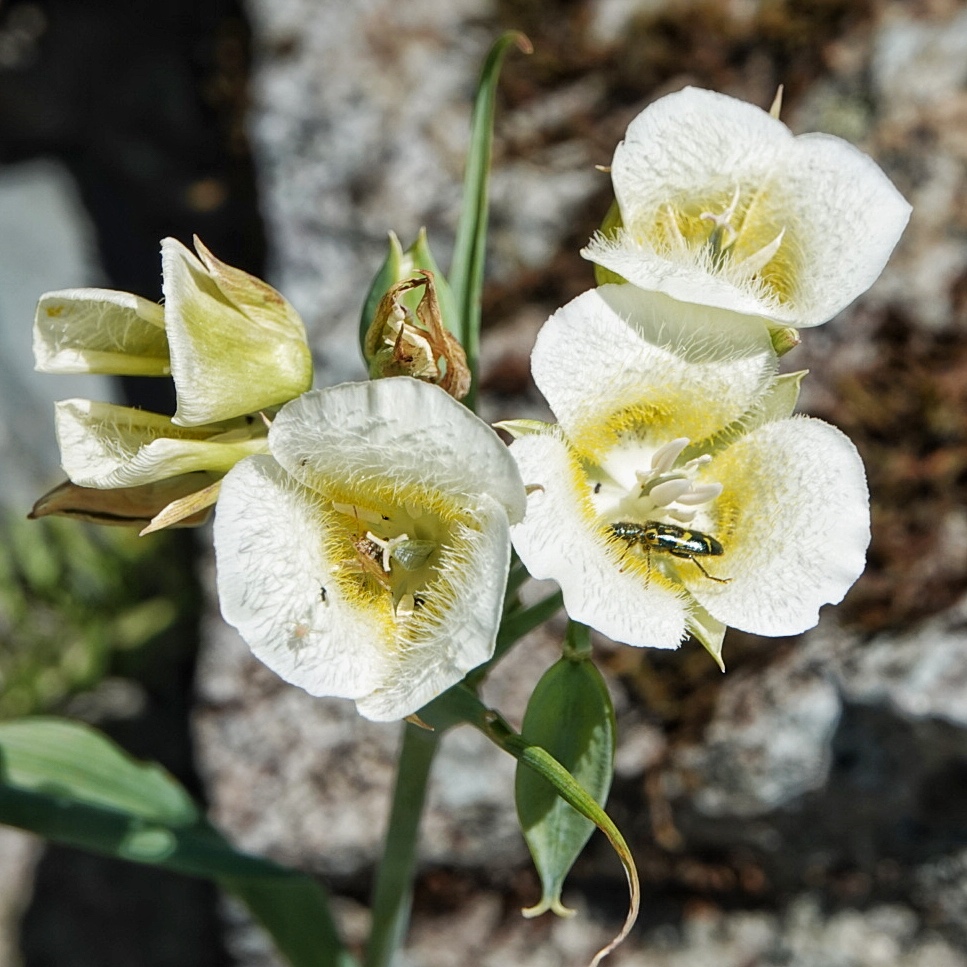
This subtly beautiful member of the family Liliaceae goes by various common names, including Cascade mariposa lily, mountain mariposa, subalpine mariposa-lily, and mountain cat’s ear. The only place I have found it is at 4,000’ elevation on the west side of Cougar Rock, on the ridgeline that separates the watersheds of the E. Fork Lewis, N. Fork Lewis, and Wind rivers, but Craig Sondergaard said he’s found several in the blast zone at Mt. St. Helens.
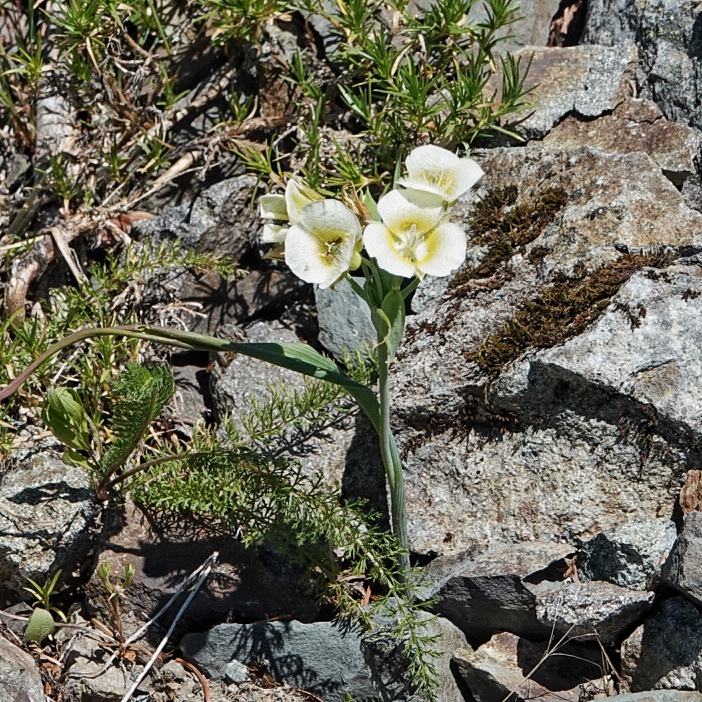
In my limited experience of seeing Calochortus subalpinus it seems to be more attractive to beetles than it is to Diptera or Hymenoptera, but I have no idea why that might be, or even if it’s truly the case. Indigenous peoples dug up the bulbs, and ate them raw or roasted, but I can’t find information indicating they found medicinal uses for this plant.
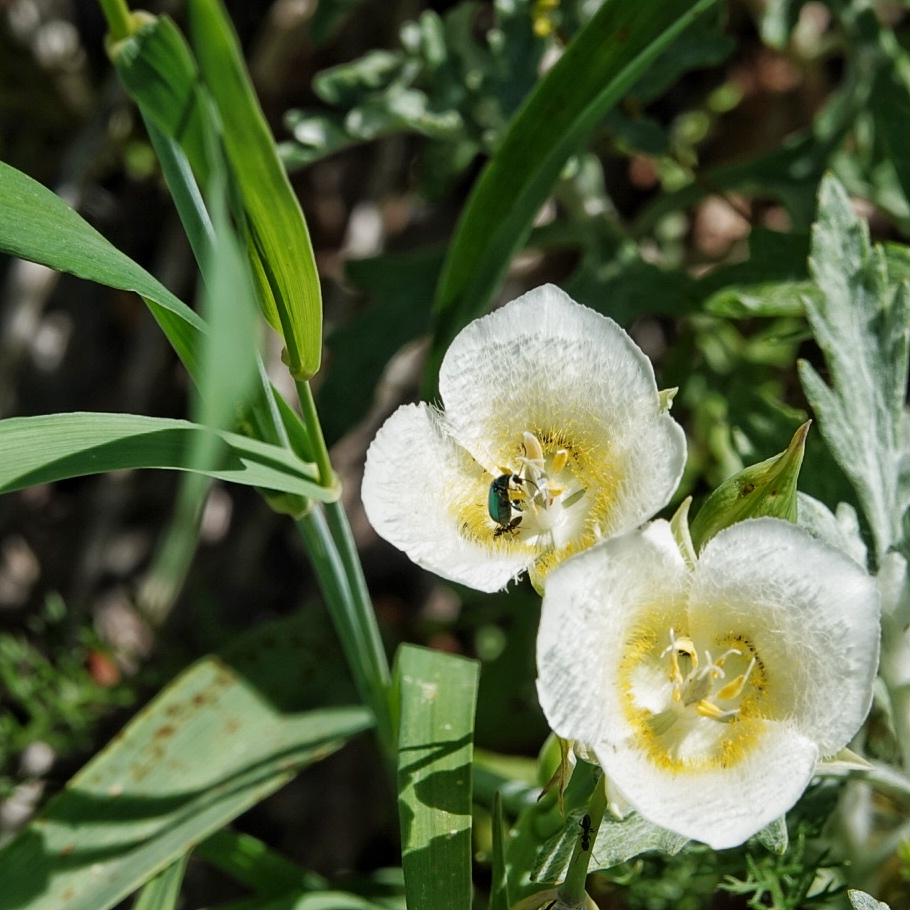
Description-Small (usually less than 12” tall), with an erect leafless stem arising from a rosette of broad (up to 15mm wide) leaves; flowers in a cluster at the top, flower petals cream to white, very hairy inside (hence the ‘cat’s ear’ epithet), sometimes with a thin dark transverse line and tiny dots in the throat; hairs are white, except for a narrow band of yellow ones in the throat; sepals darker, pointed;
Similar species– Other Calochortus are not cream colored and/or have more dark markings in the throat.
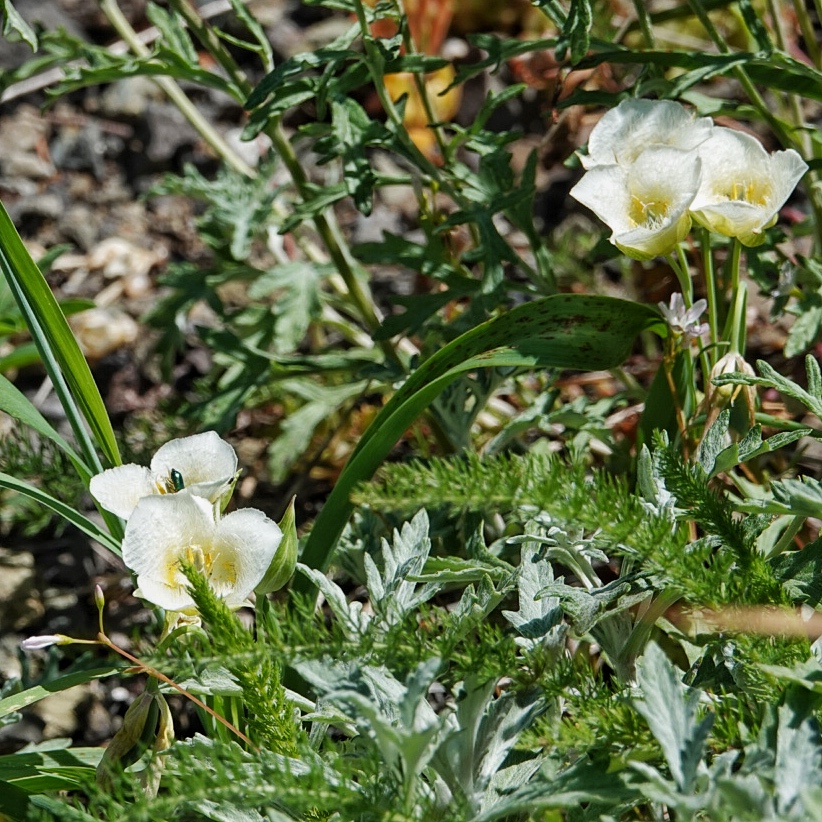
Habitat-Volcanic soils in open areas at mid to high elevations.
Range-Primarily in mid to high elevations in the Cascades, from Mt St Helens in the north to Mt Bailey in the south, but disjunct populations may occur.
Reproductive timing-June to August
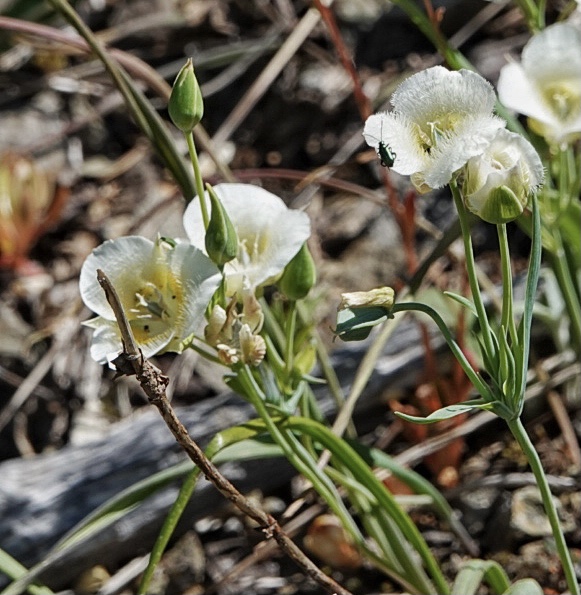
Eaten by-I can’t find any information on use of this plant as a larval host; I have seen unidentified leaf beetles, and Trichodes ornatus feeding on the pollen, and probably the nectar.
Etymology of names–Calochortus is from the Greek for ‘beautiful grass’. The specific epithet subalpinus refers to it being a species for higher elevations.
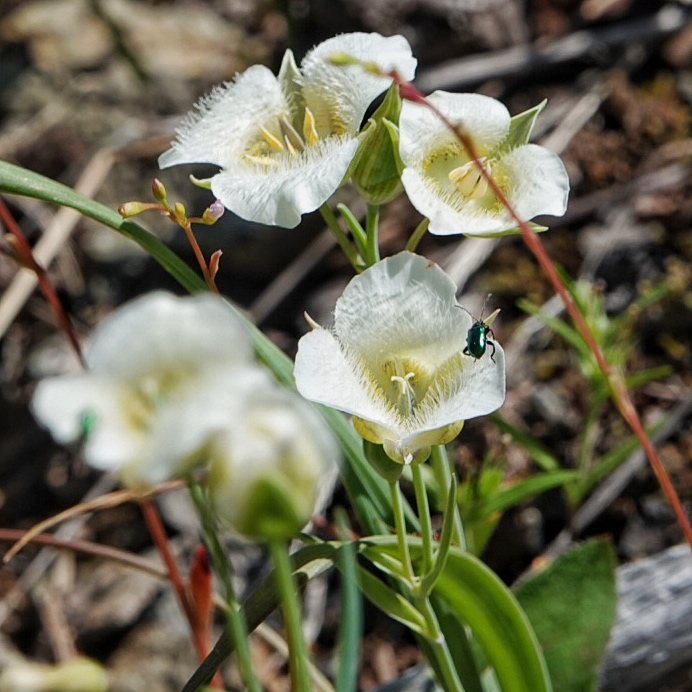
OregonFlora Calochortus subalpinus
Calochortus subalpinus | Subalpine Mariposa Lily | Wildflowers of the Pacific Northwest
http://beta.floranorthamerica.org/Calochortus_subalpinus
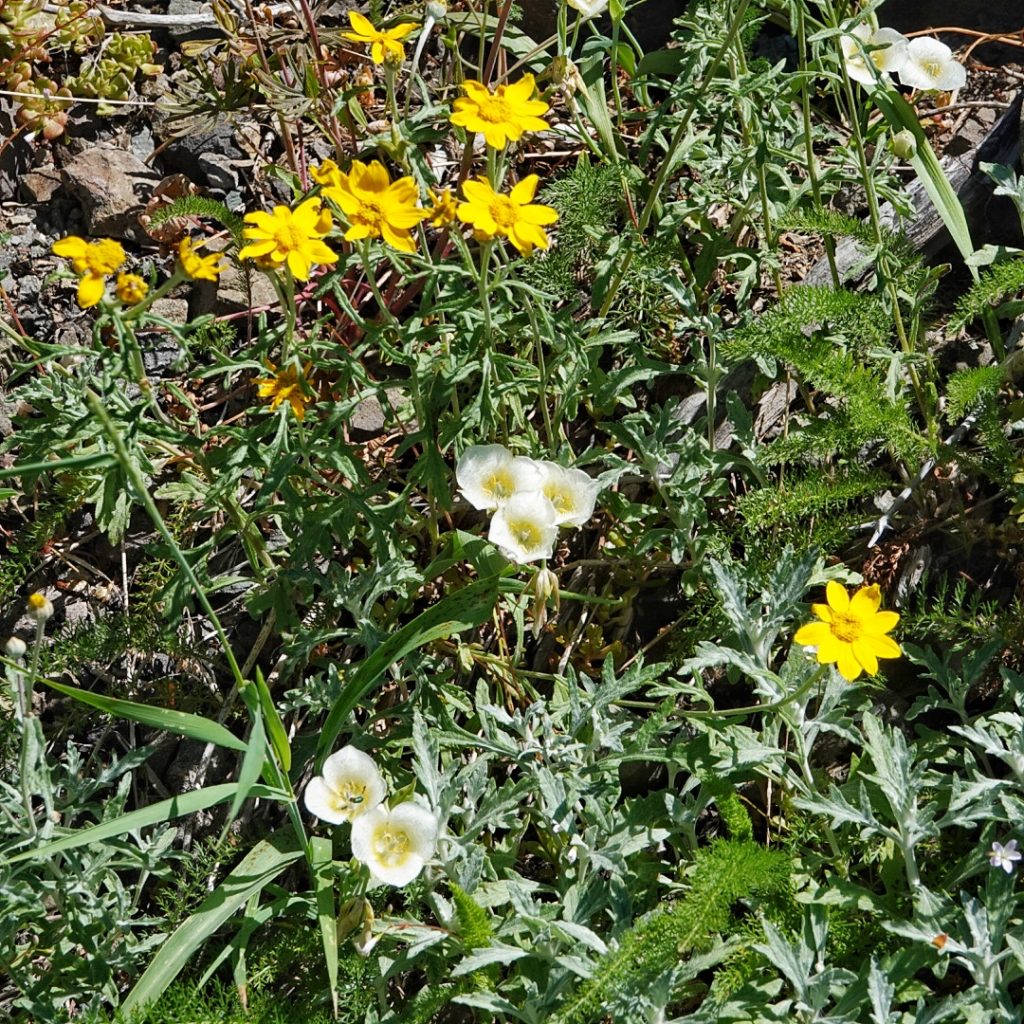
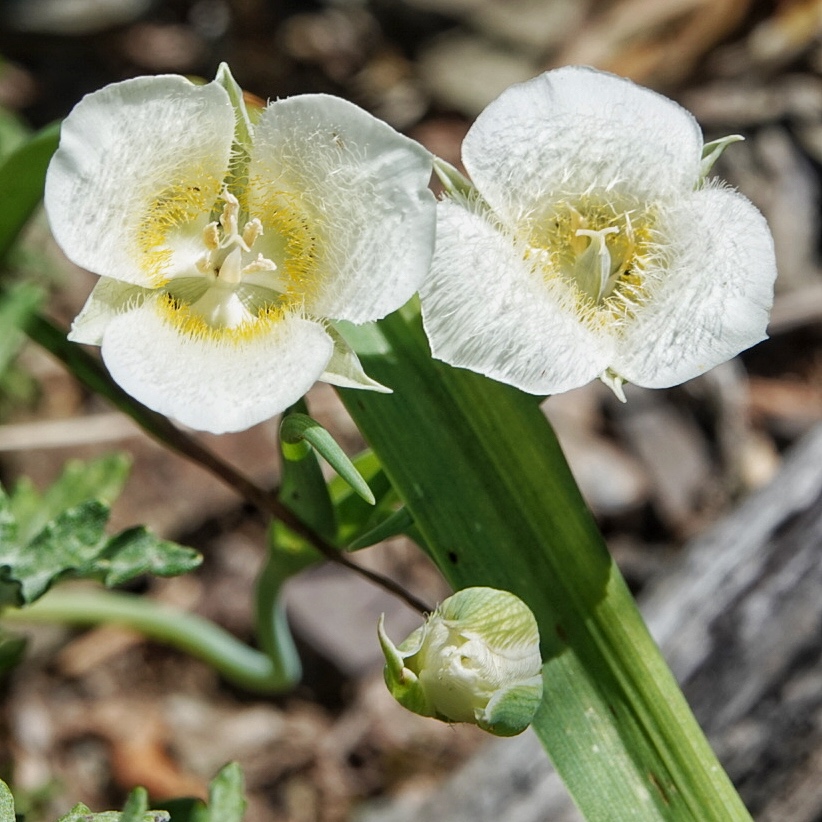
The mariposa lilies were thick on top of Steamboat Mountain in the Gifford Pinchot last week. Quite a few were by the trail up to the top, too. Now, if I could just figure out what the bugs were we saw up there–all my attempts at getting an ID have failed so far.
Cool! Sounds beautiful! Got any clear pics of the bugs?
Not incredibly clear, but not the worst. I’ve posted on a couple of insect identification FB pages with no luck so far.
You can send them to me at recreationalnaturalist@10000thingsofthepnw.com and I’ll see if any of my friends can help.
Thanks, I just did!